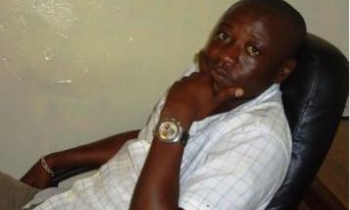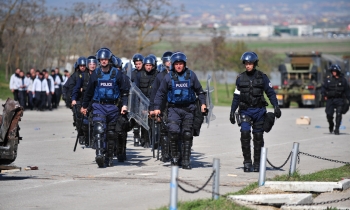Spain's two largest newspapers, El País and El Mundo, have launched into a fierce row over their reporting of investigations into the Islamist train bombings that killed 191 Madrid commuters two and a half years ago.
The outbreak of hostilities between the country's most influential dailies follows the publication in El Mundo of a series of interviews with a small-time Spanish crook accused of supplying the explosives used in the bombings.
In the interviews José Emilio Suárez claims the bombings hid what was effectively a coup d'etat that brought the Socialist government of prime minister José Luis Rodríguez Zapatero to power.
Mr Zapatero's Socialists won a national election three days after the Madrid bombings, ousting a People's party that had led in opinion polls published prior to the bombings. "I am the victim of a coup they have tried to hide behind a bunch of muslims," Mr Suárez said.
On Wednesday El País published part of a conversation between Mr Suárez and his parents - apparently recorded by authorities during a prison visit - which it claimed showed El Mundo had paid him.
Socialist-supporting El País accused El Mundo of "yellow" journalism and stirring up conspiracy theories, including the idea that Basque group Eta may have been involved in the attacks. El Mundo yesterday denied paying Mr Suárez and claimed El País had taken his words out of context.
In a widening of the media war, privately owned radio stations have taken sides. The conservative ABC newspaper, the third largest Madrid-based daily, has also attacked El Mundo.
El Mundo has long been a critic of El País's powerful owner, the pro-socialist media magnate Jesús de Polanco, who owns TV, radio and publishing interests.
The spat between the newspapers also reflected a continuing campaign by the People's party to cast doubt on the police investigation into the Madrid bombings.
The campaign has split the People's party itself, as those close to former prime minister José María Aznar keep the conspiracy theories bubbling while other senior figures complain this damages the party's chances of re-election.
"There are more shadows than there is light in this case," the former minister Eduardo Zaplana said in parliament on Wednesday, claiming evidence appeared to have been hidden or falsified.
The People's party mayor of Madrid, Alberto Ruiz-Gallardón, this week called on the party to leave the investigation to the police and courts and concentrate, instead, on criticising government policy.
Mr Zapatero's government, meanwhile, accused the People's party of failing to get over its initial error in insisting the attacks had been carried out by the Basque terrorist group Eta. "Once again we are being asked to explain what happened under a previous government," the interior minister, Alfredo Pérez Rubalcaba, told MPs
He said the People's party was still trying to make people think Eta was behind the attacks while stoking fantasies about a socialist-led conspiracy. The People's party leader, Mariano Rajoy, denied promoting conspiracy theories, saying what he wanted was an investigation.
Attack theories
Eta Prime minister José María Aznar's government initially blamed Basque terrorist group Eta for the attacks but evidence soon pointed to Islamists. Fresh conspiracy theories now see Eta and the Islamists working together
Morocco The bombers were mostly Moroccan. Spain had retaken, by force, an islet off the north African coast after it was occupied by Morocco. Conspiracy theorists think Moroccan intelligence services could have stopped the Madrid attack but chose not to
Spanish police Did they deliberately hide or tamper with the evidence? Yes, say conspiracy theorists. If so, why?
Socialists The Socialist party was the surprise winner of a general election three days after the attack. Surely, the conspiracy theorists say, there must be something there.









